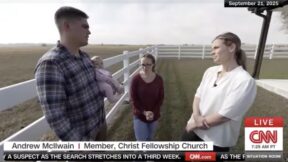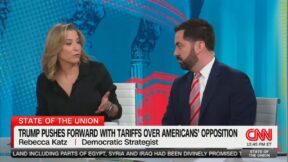Twitter Reinstates Doctors Banned For Violating ‘COVID Misleading Information Policy’

Constanza Hevia/AFP via Getty Images
Twitter has reinstated two doctors who were banned for violating the platform’s former “COVID Misleading Information Policy.”
Robert Malone and Peter McCullough were reinstated this week.
“I’m back… Welcome to Fifth Gen (Information) Warfare The battleground is consensus of the swarm and your own mind. Please share my substack from today,” posted Malone in his first tweet since being reinstated on Monday.
Malone was suspended from the platform after questioning the efficacy of Covid vaccines. A Dec. 29, 2021, post that included a video had the caption, “The Pfizer Inoculations For COVID-19 – More Harm Than Good – VIDEO.”
“Pfizer 6 month data which shows that Pfizer’s COVID-19 inoculations cause more illness than they prevent. Plus, an overview of the Pfizer trial flaws in both design and execution,” he tweeted.
This claim is false. Despite Malone’s account being reinstated, this tweet still cannot be shared.
McCullough, a prominent cardiologist, has also been outspoken against Covid vaccines.
“Alright everyone, I am back on Twitter! Let’s see my verification and completely uncensored, no unfollow programs, no bots assigned to me, and absolutely no shadow-banning. Let the world hear the medical truth (98% want it) on the pandemic and more!” he tweeted on Tuesday.
McCullough was banned from Twitter in October, just weeks before Elon Musk took over the company, apparently after posting a video claiming that the Pfizer Covid vaccine was causing children to die.
https://twitter.com/gchahal/status/1579210617465950209?s=20&t=L37c8z_xkO0eJw5Tm-MYhQ
Last month, Twitter announced it was no longer enforcing its Covid misinformation policy.
“Effective November 23, 2022, Twitter is no longer enforcing the COVID-19 misleading information policy,” stated a note on the social media site’s “Covid-19 Misinformation” section.
The policy covered “false or misleading information about how the virus is spread, diagnostic tools or testing, or symptoms or effects of the disease; official regulations, restrictions, or exemptions related to health recommendations; the safety and/or effectiveness of preventative measures, treatments, or other precautions when it comes to mitigating or treating the disease; [and] the safety or effectiveness of authorized or approved vaccines.”
New: The Mediaite One-Sheet "Newsletter of Newsletters"
Your daily summary and analysis of what the many, many media newsletters are saying and reporting. Subscribe now!






Comments
↓ Scroll down for comments ↓